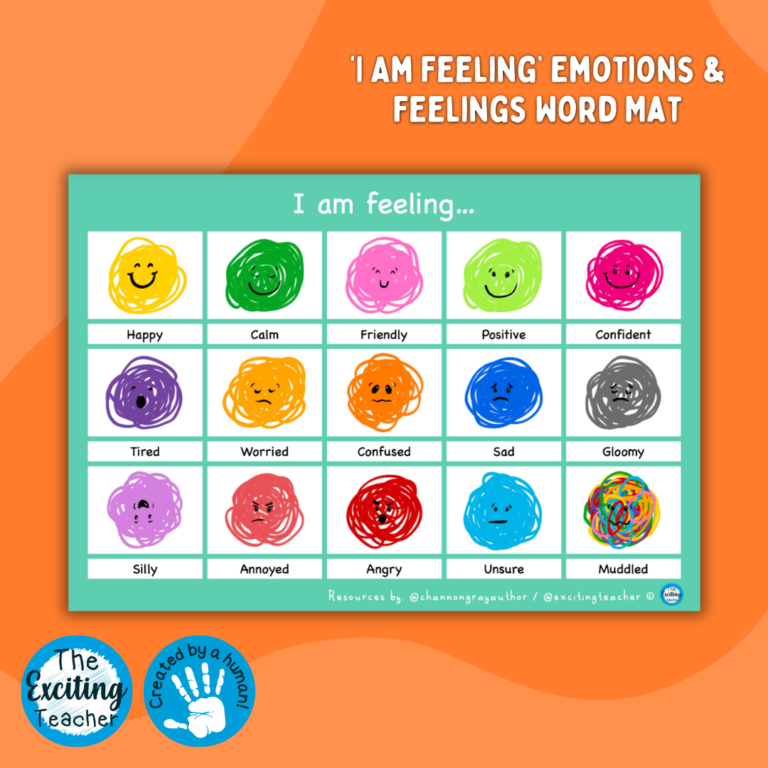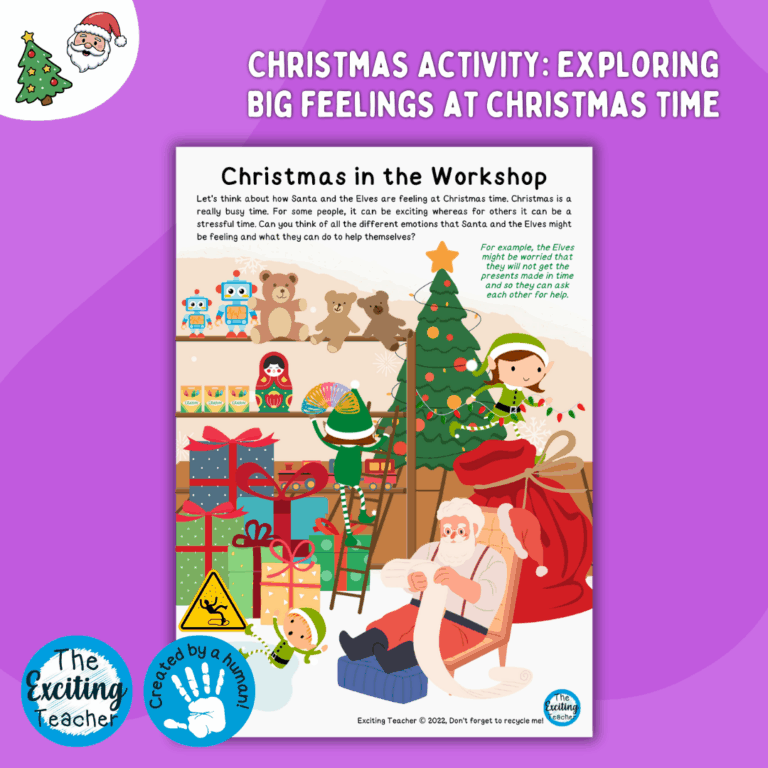I Feel Worried: Anxiety-Themed Workbook - Exploring Feelings, Thoughts, Behaviours, and Bodily Sensations

This workbook has been designed to support children and young people who feel worried or anxious. This workbook invites children to explore their worries using a focus on thoughts, feelings, bodily sensations, and behaviours – a common framework used in Cognitive Behavioural Therapy (CBT).
Please note: This is not a replacement for professional support and if you are concerned about a child and their mental health, then please seek professional medical support and/or professional therapy.
“Worrying is when we think about things that leads to us feeling unsure, uneasy or uncomfortable. It happens for lots of reasons, such as when we think about future events, bad things happening or trying something new. Worry, or Anxiety’, has been around since the Caveman days. When we feel worried, this is our brain and body’s way of checking for danger and making sure we are safe. It is the reason why humans have survived for so long. Worrying sometimes is normal, but when worry starts to stop us from doing things that we want to do or we find ourselves feeling worried a lot, then this is when we need to learn strategies for managing our worries.”
Relevant Curriculum Links
England PSHE Statutory Curriculum Strands:
KS1:
- H11. about different feelings that humans can experience.
- H12. how to recognise and name different feelings.
- H13. how feelings can affect people’s bodies and how they behave.
- H14. how to recognise what others might be feeling.
- H15. to recognise that not everyone feels the same at the same time, or feels the same about the same things.
- H16. about ways of sharing feelings; a range of words to describe feelings.
- H17. about things that help people feel good (e.g. playing outside, doing things they enjoy, spending time with family, getting enough sleep).
- H18. different things they can do to manage big feelings, to help calm themselves down and/or change their mood when they don’t feel good.
- H19. to recognise when they need help with feelings; that it is important to ask for help with feelings; and how to ask for it.
- H20. about change and loss (including death); to identify feelings associated with this; to recognise what helps people to feel better.
KS2:
- H15. that mental health, just like physical health, is part of daily life; the importance of taking care of mental health.
- H16. about strategies and behaviours that support mental health — including how good quality sleep, physical exercise/time outdoors, being involved in community groups, doing things for others, clubs, and activities, hobbies and spending time with family and friends can support mental health and wellbeing.
- H17. to recognise that feelings can change over time and range in intensity.
- H18. about everyday things that affect feelings and the importance of expressing feelings.
- H19. a varied vocabulary to use when talking about feelings; about how to express feelings in different ways.
- H20. strategies to respond to feelings, including intense or conflicting feelings; how to manage and respond to feelings appropriately and proportionately in different situations.
- H21. to recognise warning signs about mental health and wellbeing and how to seek support for themselves and others.
- H22. to recognise that anyone can experience mental ill health; that most difficulties can be resolved with help and support; and that it is important to discuss feelings with a trusted adult.
- H24. problem-solving strategies for dealing with emotions, challenges and change, including the transition to new schools.
Scottish Health and Wellbeing Curriculum Outcome(s):
- I am aware of and able to express my feelings and am developing the ability to talk about them. HWB 0-01a / HWB 1-01a / HWB 2-01a / HWB 3-01a / HWB 4-01a.
- I know that we all experience a variety of thoughts and emotions that affect how we feel and behave and I am learning ways of managing them. HWB 0-02a / HWB 1-02a / HWB 2-02a / HWB 3-02a / HWB 4-02a.
- I understand that there are people I can talk to and that there are a number of ways in which I can gain access to practical and emotional support to help me and others in a range of circumstances. HWB 0-03a / HWB 1-03a / HWB 2-03a / HWB 3-03a / HWB 4-03a.
- I understand that my feelings and reactions can change depending upon what is happening within and around me. This helps me to understand my own behaviour and the way others behave. HWB 0-04a / HWB 1-04a / HWB 2-04a / HWB 3-04a / HWB 4-04a.
- I understand the importance of mental wellbeing and that this can be fostered and strengthened through personal coping skills and positive relationships. I know that it is not always possible to enjoy good mental health and that if this happens there is support available. HWB 0-06a / HWB 1-06a / HWB 2-06a / HWB 3-06a / HWB 4-06a.



